Deciding whether to invest in an espresso machine is like standing at a coffee crossroad. On one side, you have the allure of freshly brewed espresso shots right in your kitchen; on the other, there’s the practicality and cost considerations.
In this guide, we’ll break down the essential points to help you determine if bringing an espresso machine into your home is a savvy move. From understanding the types of machines to analyzing costs, benefits, and drawbacks, we’ve got you covered. So, let’s dive into the ultimate question: is an espresso machine worth it?
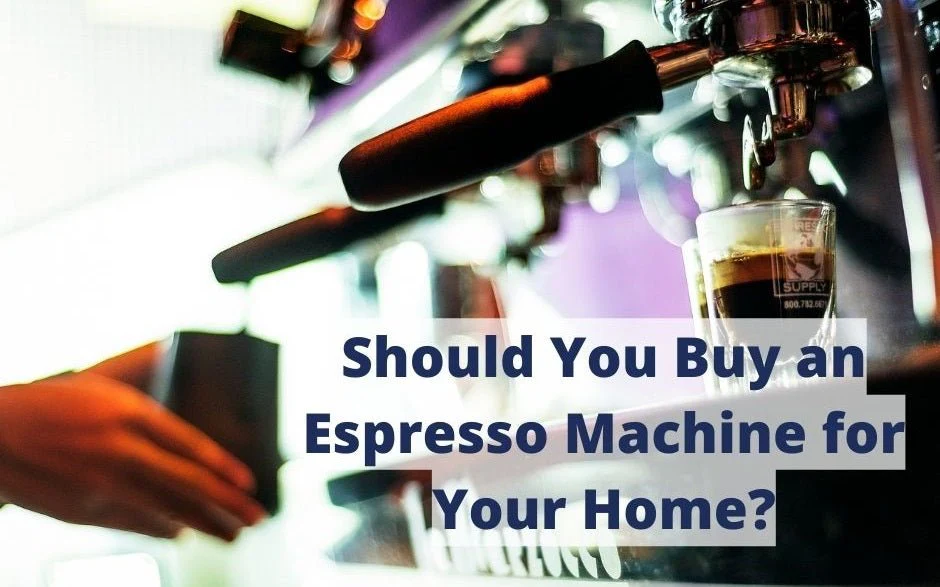
What is an Espresso Machine?
An espresso machine is a specialized coffee maker designed to brew espresso by forcing hot water through finely-ground coffee beans at high pressure. This process creates a concentrated, rich, and flavorful shot of coffee that forms the base for many popular drinks like lattes and cappuccinos.
Types of Espresso Machines
- Manual Espresso Machines: These require you to control every aspect of the brewing process, offering the most hands-on experience. Perfect for coffee enthusiasts who love the craft.
- Semi-Automatic Espresso Machines: These offer a balance between control and convenience, allowing you to grind your own beans and control the extraction time while automating other steps.
- Automatic Espresso Machines: These machines automate most of the brewing process, making it easier to achieve consistent results with minimal effort.
- Super-Automatic Espresso Machines: These are the most convenient, often featuring built-in grinders, milk frothers, and programmable settings to deliver a coffee shop experience at home with just the press of a button.
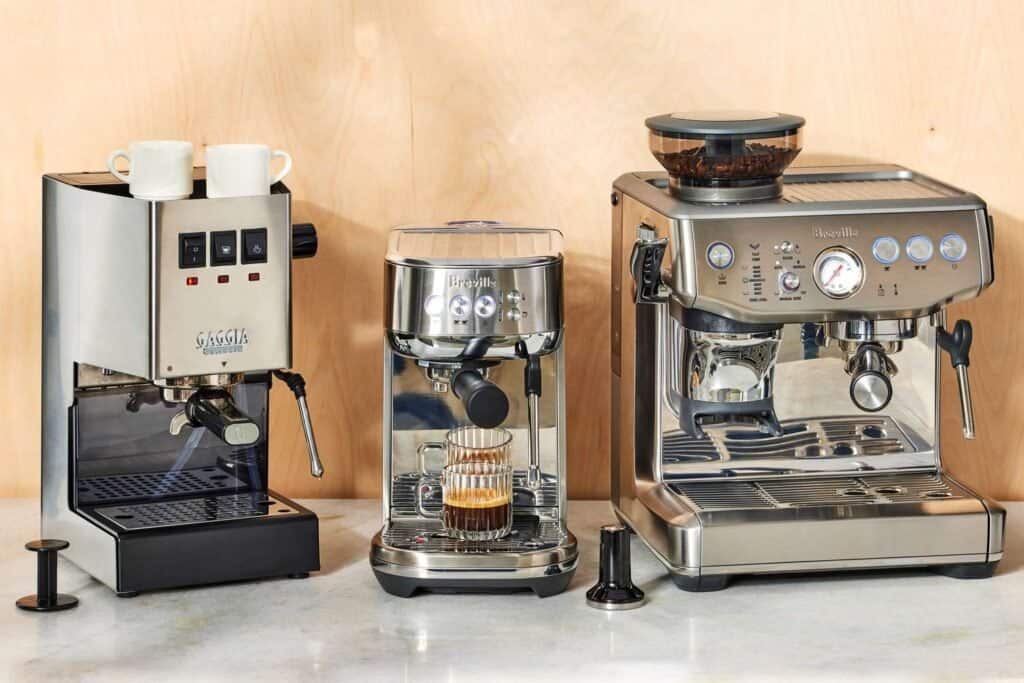
Espresso machines vary in complexity and functionality, catering to different preferences and levels of coffee-making expertise. Whether you’re a budding barista or just want a quick, quality brew, there’s an espresso machine for you.
Pros of Buying an Espresso Machine
Investing in an espresso machine comes with several enticing benefits that can transform your coffee routine. Here are the main advantages:
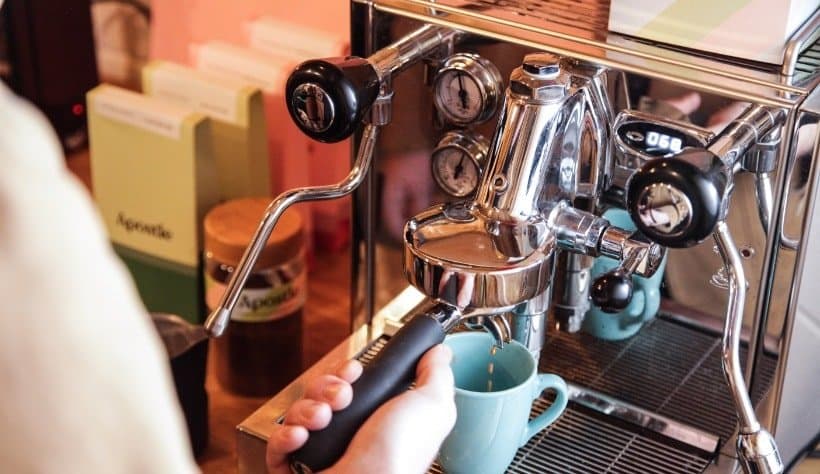
- Quality of Coffee Espresso machines are designed to extract the full flavor and aroma from coffee beans, delivering a rich and satisfying cup of coffee. High-quality machines can produce coffee shop-level espresso, ensuring that every sip is packed with bold flavors and a smooth texture.
- Long-Term Savings While the initial investment in an espresso machine can be significant, it can save you money in the long run. Consider how much you spend on daily trips to the coffee shop. Those costs add up quickly. By making your own espresso at home, you can reduce your coffee expenses significantly. Over time, the machine can pay for itself.
Enhanced Coffee Quality
One of the standout benefits of owning an espresso machine is the superior coffee quality it delivers. Here’s how espresso machines excel compared to other brewing methods:
Precision in Brewing
Espresso machines are engineered to maintain precise water temperature and pressure throughout the brewing process. This precision ensures optimal extraction of the coffee’s flavors and oils, resulting in a rich, full-bodied espresso shot with a distinctive crema on top.
Consistent Flavor
With an espresso machine, you can achieve a consistent flavor profile in every cup. Unlike drip coffee makers or French presses, which can vary in quality depending on factors like water temperature and brewing time, espresso machines are designed to provide a uniform brewing experience, giving you the same great taste every time.
Concentrated Coffee Experience
Espresso machines produce a more concentrated and robust coffee compared to other methods. The high-pressure extraction process draws out the intense flavors and aromatic compounds from the coffee grounds, creating a beverage that is both strong and smooth. This concentrated coffee can be enjoyed on its own or used as a base for a variety of delicious coffee drinks like lattes, cappuccinos, and macchiatos.
Convenience and Speed
Having an espresso machine at home revolutionizes your coffee experience, making it faster and more convenient. Here’s how:

- Quick Brewing Time Espresso machines are designed to brew coffee quickly. Once you have your beans ground and ready, it takes just about 25-30 seconds to pull a shot of espresso. This is much faster compared to other methods like drip coffee makers or French presses, which can take several minutes to brew.
- Easy Access to Quality Coffee With an espresso machine at home, you have instant access to high-quality coffee. No more rushing to the nearest coffee shop in the morning or waiting in long lines. You can enjoy a freshly brewed espresso or your favorite coffee drink whenever you want, day or night.
- Simplified Morning Routine An espresso machine streamlines your morning routine. Instead of spending time making a trip to a café, you can prepare your coffee at home while getting ready for the day. This not only saves time but also allows you to enjoy your coffee in a relaxed environment.
- Customization at Your Fingertips Espresso machines allow for a high level of customization. You can adjust the grind size, water temperature, and extraction time to perfect your brew. Whether you prefer a strong, bold espresso or a milder shot, you have the flexibility to create your perfect cup every time.
Cons of Buying an Espresso Machine
While owning an espresso machine has its perks, it’s important to consider the potential downsides before making a purchase. Here are some cons to keep in mind:
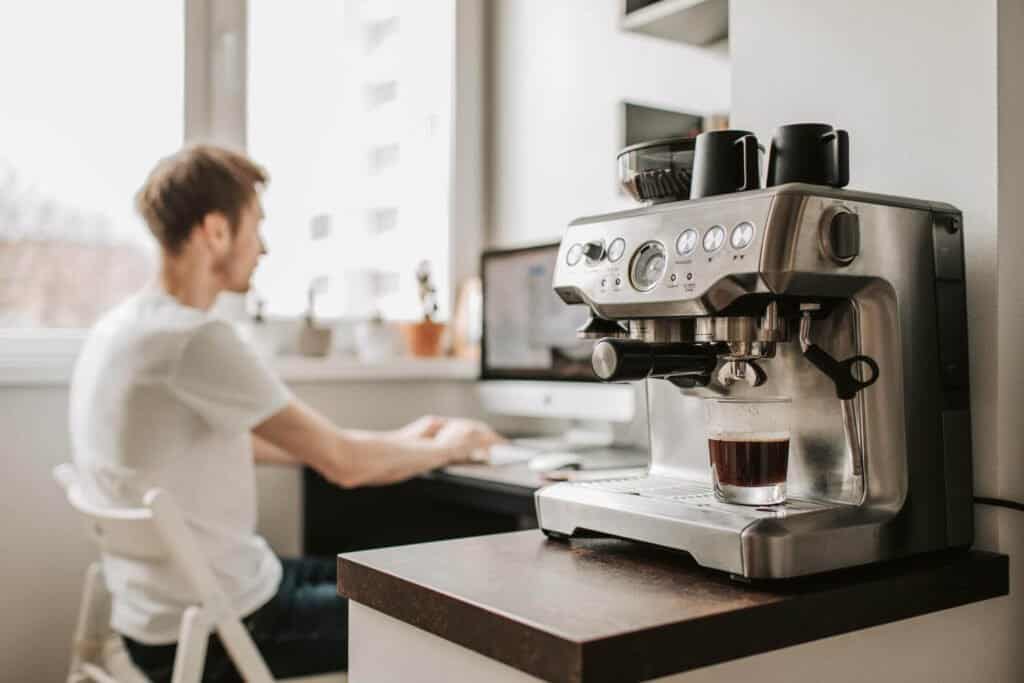
- Learning Curve Using an espresso machine effectively can take some practice. There’s a learning curve involved in understanding how to grind the beans properly, tamp the coffee grounds, and control the brewing process. It might take some time and experimentation to get the perfect shot of espresso. For those who prefer a simple and straightforward coffee-making process, this can be a drawback.
- Space Considerations Espresso machines, particularly larger models with built-in grinders and milk frothers, can take up a significant amount of counter space. If you have a small kitchen or limited counter space, finding a suitable spot for your espresso machine can be challenging.
Cost Implications
When considering an espresso machine, understanding the financial aspects is crucial. Here’s a breakdown of the initial investment and ongoing costs:
Initial Investment The first thing to note is the initial cost of purchasing an espresso machine. Prices can vary widely depending on the type and features of the machine. Entry-level models might start around $100-$200, but higher-end machines with advanced capabilities can range from $500 to several thousand dollars. This high upfront cost often leads to the question, “why are espresso machines so expensive?” The answer lies in the technology, materials, and engineering required to achieve precise brewing parameters and long-lasting performance.

Ongoing Costs
- Coffee Beans: To get the best out of your espresso machine, you’ll need high-quality coffee beans. Specialty beans can be more expensive than regular pre-ground coffee, but they significantly enhance the taste and aroma of your espresso.
- Maintenance and Cleaning Supplies: Regular maintenance is essential for keeping your espresso machine in top condition. This includes descaling solutions, cleaning tablets, and replacement parts like filters and gaskets. These supplies add to the ongoing costs.
- Energy Consumption: Espresso machines can be energy-intensive, especially if they have built-in grinders and milk frothers. While not exorbitant, the electricity cost is something to consider.
- Accessories: Depending on your machine, you might need additional accessories like a coffee grinder, tamper, and milk frothing pitcher. These can add to the initial and ongoing expenses.
While the costs associated with owning an espresso machine can be substantial, they are balanced by the potential long-term savings from making coffee at home instead of buying it from a coffee shop daily. Proper budgeting and understanding of these expenses will help you make an informed decision.
Maintenance Requirements
Owning an espresso machine comes with the responsibility of regular maintenance to ensure it continues to perform at its best. Here’s a look at what’s involved in maintaining an espresso machine and potential issues that might arise:
Regular Cleaning To keep your espresso machine in top shape, you need to clean it regularly. This includes:
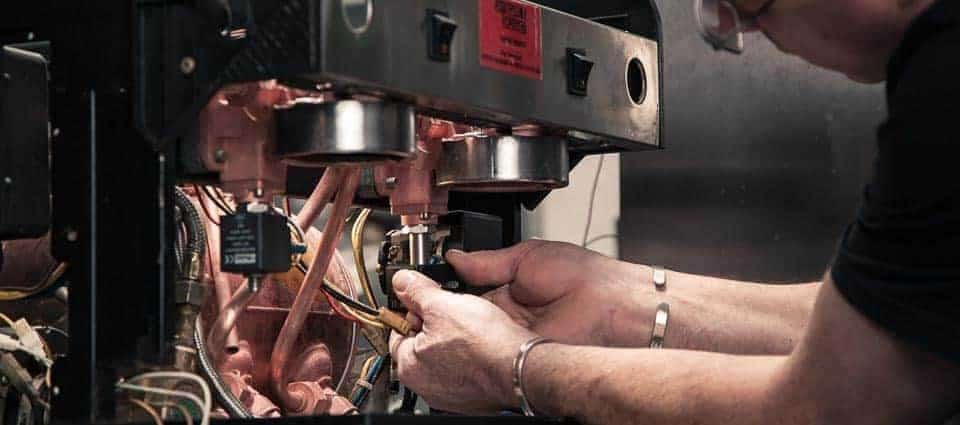
- Daily Cleaning: After each use, it’s important to rinse the portafilter, wipe down the steam wand, and purge the group head to remove any leftover coffee grounds or milk residue.
- Weekly Cleaning: At least once a week, you should perform a more thorough cleaning, including backflushing the machine with a cleaning solution to clear out any buildup inside the machine’s system.
- Monthly Cleaning: Monthly maintenance involves descaling the machine to remove mineral deposits that can affect performance. This is particularly important if you live in an area with hard water.
Descaling Descaling is a crucial part of maintaining an espresso machine. Over time, mineral deposits from water can build up inside the machine, affecting its ability to heat water and brew coffee properly.
Descaling solutions or tablets are used to remove these deposits and keep the machine running smoothly. Depending on the water hardness and usage frequency, descaling should be done every few months.
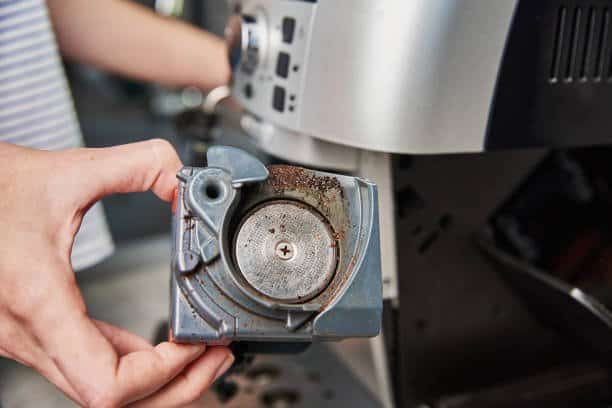
Potential Issues Despite regular maintenance, espresso machines can sometimes encounter issues. Common problems include:
- Clogged Filters: Coffee grounds can clog the machine’s filters, affecting the quality of your espresso. Regular cleaning helps prevent this.
- Leaks: Over time, seals and gaskets can wear out, leading to leaks. Replacing these parts is a normal part of machine maintenance.
- Pressure Problems: Issues with water pressure can impact the brewing process. This might require professional servicing to resolve.
Replacement Parts Certain parts of the espresso machine, like the group gasket, portafilter basket, and steam wand tip, may need to be replaced periodically due to wear and tear. Keeping an eye on these components and replacing them as needed ensures the machine’s longevity.
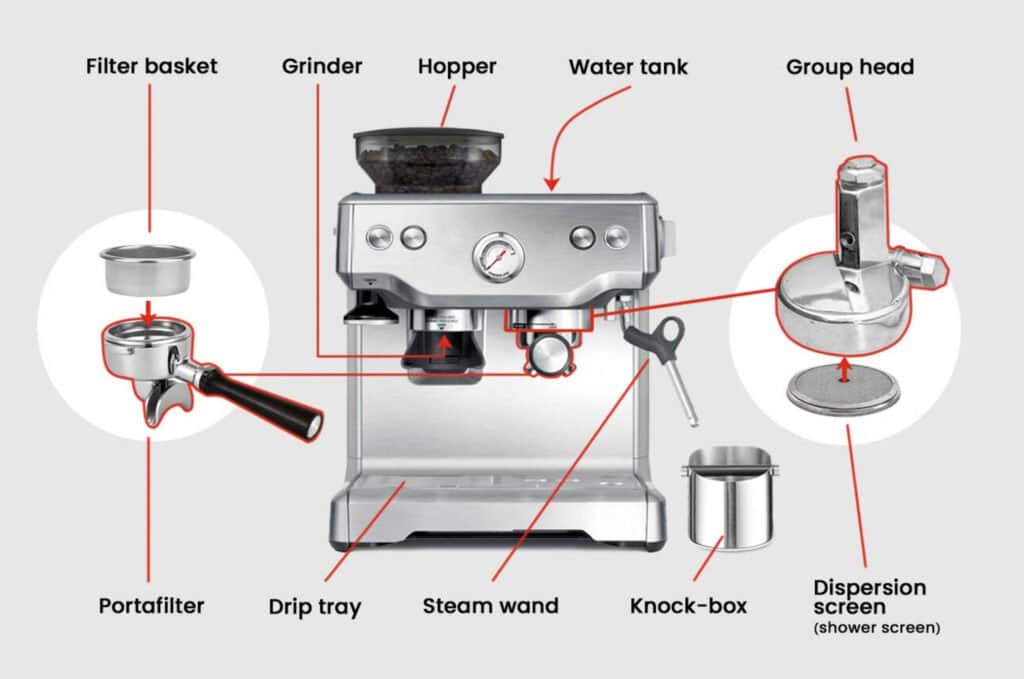
Maintaining an espresso machine requires consistent effort and attention, but it’s essential for ensuring the machine’s performance and longevity. By staying on top of maintenance tasks, you can enjoy high-quality espresso for years to come.
Comparing Espresso Machines with Alternatives
When it comes to brewing coffee, there are several methods to choose from, each with its own advantages and disadvantages. Here’s how espresso machines stack up against other popular coffee-making methods in terms of cost, convenience, and coffee quality:
Cost
- Espresso Machines: High initial cost ($100s to $1000s) but long-term savings by avoiding daily café purchases.
- Drip Coffee Makers: Affordable ($20-$200), but less quality and customization.
- French Press: Very economical ($15-$50), no electricity needed, minimal maintenance.
- Pod/Capsule Machines: Initially inexpensive but pods can be costly over time.
Convenience
- Espresso Machines: Require learning and maintenance but offer quick, customizable coffee.
- Drip Coffee Makers: Easy to use and maintain, ideal for simple brewing.
- French Press: Manual and simple, good for making multiple cups, but requires attention to detail.
- Pod/Capsule Machines: Extremely convenient and mess-free but lack customization and are less eco-friendly.
Coffee Quality
- Espresso Machines: High-quality, rich, and flavorful espresso with precision.
- Drip Coffee Makers: Milder, less concentrated coffee.
- French Press: Strong, full-bodied coffee, but lacks espresso’s crema and concentration.
- Pod/Capsule Machines: Consistent but typically lower quality than fresh espresso.
Coffee Pods vs. Espresso Machines
- Cost-Effectiveness: Coffee pods are convenient but more expensive per cup. Espresso machines have a higher initial cost but are cheaper over time.
- Environmental Impact: Coffee pods generate significant waste. Espresso machines, especially with reusable filters, are more eco-friendly.
Drip Coffee vs. Espresso Machines
- Coffee Quality: Drip coffee is milder and less concentrated, suitable for larger quantities. Espresso machines produce rich, robust coffee with a creamy crema.
- Preparation Time: Drip coffee takes 5-10 minutes for a pot, whereas espresso machines brew a shot in about 25-30 seconds, making them ideal for quick coffee fixes.
Is an Espresso Machine Right for You?
Deciding if an espresso machine is suitable for your kitchen depends on your lifestyle, coffee preferences, and budget.
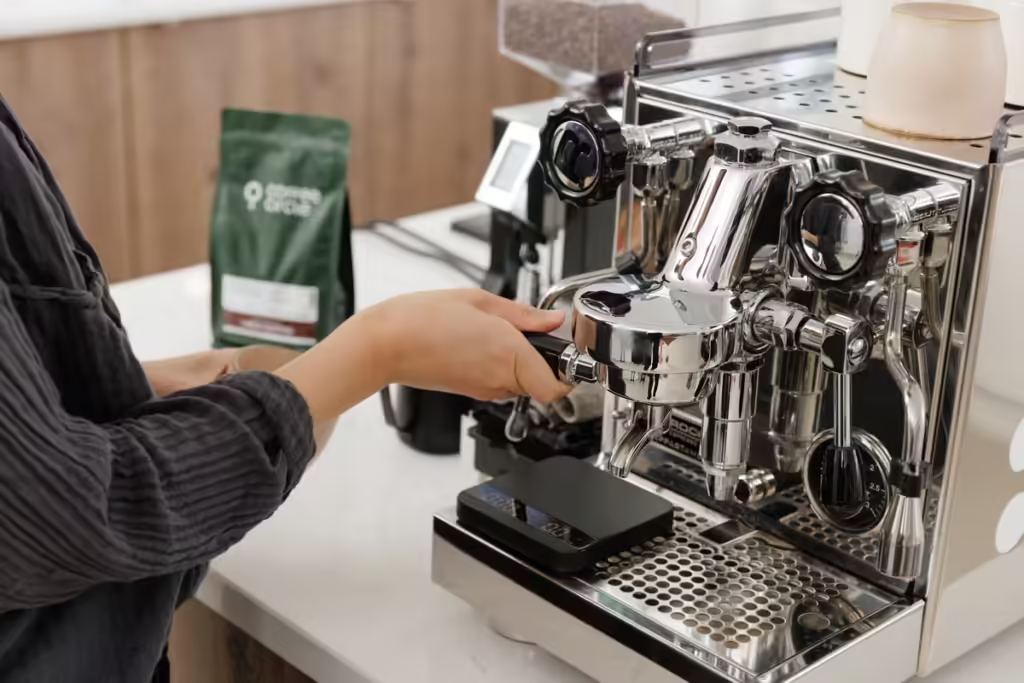
Lifestyle:
- Busy Mornings: Provides a quick, high-quality coffee fix, especially with super-automatic models offering speed and convenience.
- Home Barista Enthusiast: Perfect for those who enjoy making coffee and experimenting with brewing techniques.
- Entertaining Guests: Ideal for impressing guests with café-style drinks.
Coffee Preferences:
- Rich, Bold Flavors: Essential for lovers of rich espresso and espresso-based drinks.
- Customization: Allows control over grind size, water temperature, and brewing time for personalized coffee.
- Variety of Drinks: Capable of making a range of drinks like americanos, lattes, and macchiatos.
Budget:
- Initial Investment: Consider the significant upfront cost and if it’s worth the long-term benefits.
- Ongoing Costs: Include the cost of coffee beans, maintenance supplies, and replacement parts in your budget.
- Long-term Savings: Compare current café expenses to potential savings from home brewing.
How to Choose the Right Espresso Machine
Choosing the right espresso machine can be a daunting task given the variety of options available. Here are some tips to help you select the perfect model based on size, features, and price range:
Size and Space:
- Kitchen Space: Measure your counter space to ensure the machine fits comfortably.
- Portability: Opt for a lightweight, compact model if you need to move or store it easily.
Features:
- Type of Machine: Choose from manual, semi-automatic, automatic, or super-automatic based on your control and convenience preference.
- Built-in Grinder: Useful if you don’t already have a grinder, ensuring fresh coffee grounds.
- Milk Frother: Essential for making milk-based drinks like lattes and cappuccinos.
- Programmable Settings: Allows customization for different coffee types and strengths.
Price Range:
- Budget-Friendly Options: Ideal for beginners with simpler use and affordability.
- Mid-Range Models: Balance cost and features like better temperature control.
- High-End Machines: Best for coffee enthusiasts, offering top-tier performance and advanced features.
Brand and Reviews:
- Reputable Brands: Stick to known brands like Breville, De’Longhi, and Gaggia for quality and reliability.
- Customer Reviews: Check reviews for insights into performance, durability, and ease of use.
Final Thoughts: The Value of an Espresso Machine
In conclusion, deciding to purchase an espresso machine is a significant investment that can greatly enhance your coffee experience. The benefits include unparalleled convenience, superior coffee quality, and potential long-term savings. However, it’s important to consider the initial cost, ongoing maintenance, and the learning curve involved.
For coffee enthusiasts who appreciate the art of brewing and the rich, bold flavors of espresso, an espresso machine can bring immense value and enjoyment into daily life. It offers the flexibility to experiment with different beans and brewing techniques, creating a personalized coffee experience right at home.
When making your decision, consider your lifestyle, coffee preferences, and budget. Weigh the pros and cons carefully to ensure you choose the right machine that fits your needs and enhances your coffee journey. Whether you opt for a budget-friendly model or a high-end machine, the key is to make a thoughtful purchase that you will enjoy for years to come.
Disclosure: Our blog contains affiliate links to products. We may receive a commission for purchases made through these links. However, this does not impact our reviews and comparisons. We try our best to keep things fair and balanced, in order to help you make the best choice for you.

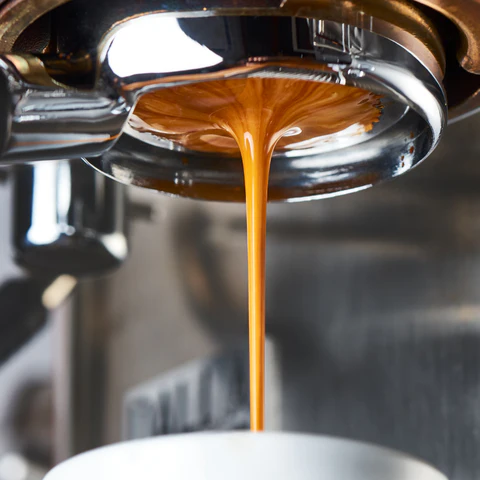


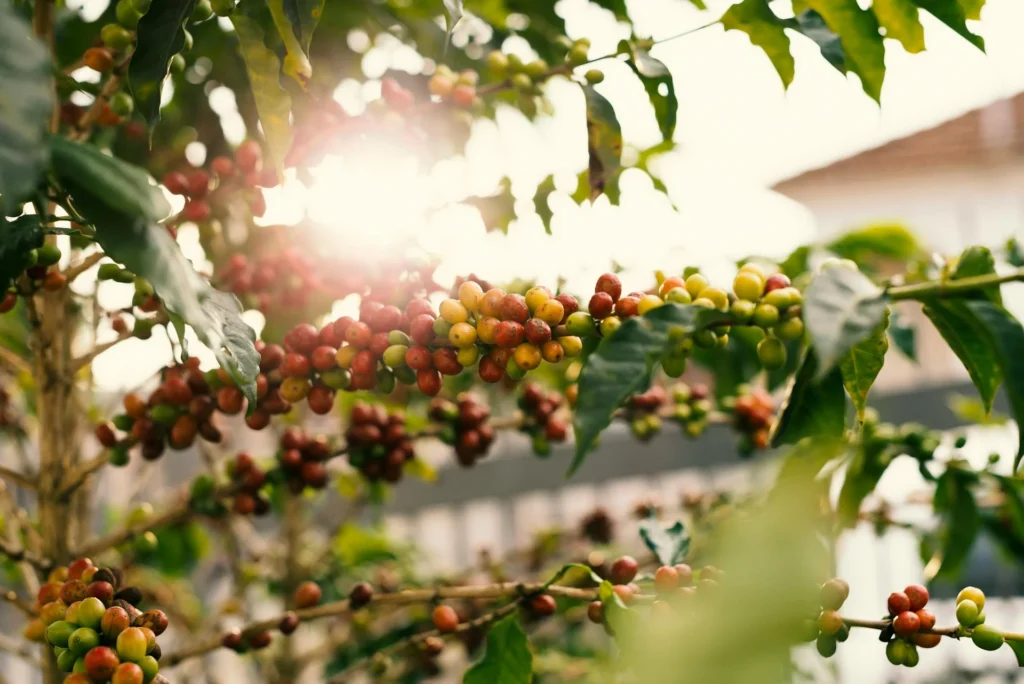
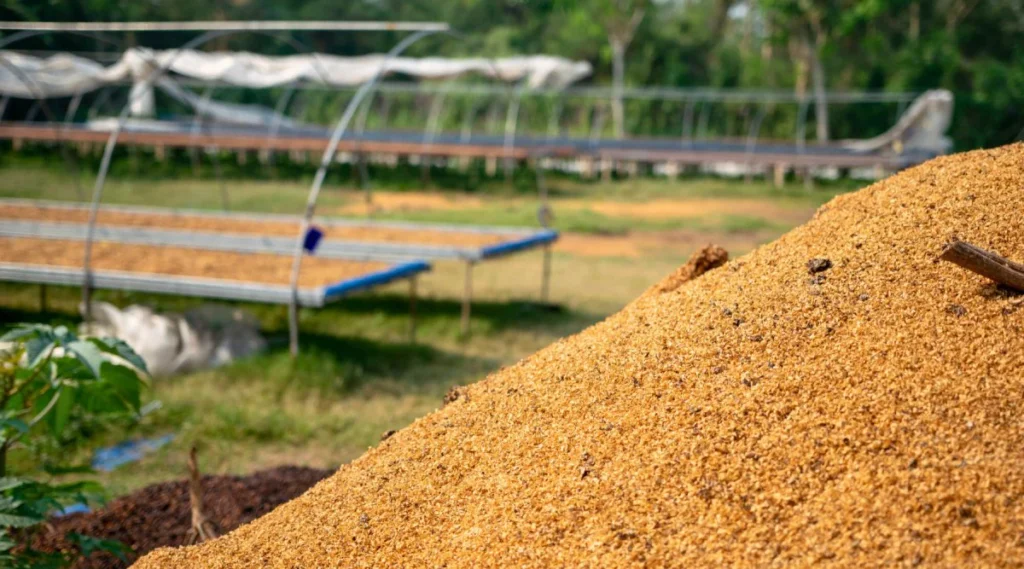


One Response